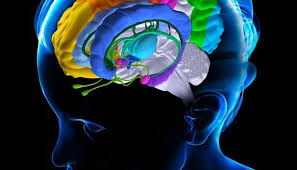
Emotional Regulation in times of Lockdown
What is an emotion?
One of the hardest questions for emotion theorists to answer has been, what exactly is an emotion? What attributes are shared by all emotions and what characteristic is necessary for a bodily response to be considered an emotion? Fortunately, there does seem to be some consensus that emotion is a coordinated set of responses to a specific set of environmental situations that are somehow important to us, with each response considered a component that acts at different levels having different functions.
There seem to be 5 component levels which act individually and come together in synergy when needed to form an emotion. Three of these levels are related to feelings: Bodily symptoms which have the function of system regulation; Facial, bodily and vocal expressions, are to communicate a reaction or an intention and Subjective feeling component, to monitor the organism- environment interaction. But of course, emotions don’t just make us feel, they also drive us to action and this component of an emotion is known as an action tendency, which prepares and give direction to an action in response to an emotion. Finally, a cognitive component gives meaning to the context and appraises how our bodily reactions correlate to the situation. These five emotional components function as an assessment mechanism and warn us that our relationship with the immediate environment is changing, but a psychologically relevant situation can also include internal events and a sneaking suspicion that I’ll never amount to anything is equally relevant to my world view and will be assessed in relation to my life goals.
Fear and Disgust
In regard to the present coronavirus threat we could consider fear and disgust as the two most functional responses as these form part of what we could consider a behavioural immune system that works in parallel with our own biological immune system, and is a proactive system to prevent infection from possible pathogens. Given the present situation these two emotions can serve us well as fear will prevent us from putting ourselves or our family in risky situations and disgust will make us move away from someone who is sneezing, or wash our hands after handling money. But of course there is a price to pay and long term fear can convert into stress which has countless negative effects on our physiology, such as the activation of the Hypothalamus – Pituitary- Adrenal Axis, which releases large amounts of cortisol directly into the blood stream, consequently shutting down organs such as the liver and kidneys along with the immune system, which is great if you are looking for an extra burst of energy to escape from a lion, but in the long term just wear us down and in extreme cases can cause heart disease and has been linked to indices of cancer.
Emotion regulation in the face of uncertainty
The key to regulating our emotions in such dire situations lies in our ability to tolerate uncertainty and to recognise that things are mainly out of our control. Emotions drive us to action and there is nothing we can do except follow the rules of social distancing, but this won’t stop our mind frantically searching for something it can do, or someone to blame. This is why conspiracy theories are so successful at these times, the thought that nature is so random and has such little regard for human wellbeing is a terrifying one and it is much more comforting to be able to point our fingers. That is not to say that humans are blameless and that lots of lessons should be learnt from this situation. Conspiracy theories and blame offer emotional regulation and can alleviate the tension, much the same way as anger is a cathartic process that can help us overcome difficult situations. At the moment it is too early to blame anyone and blame doesn’t help anyone, especially when it is used for self-serving purposes which can be seen in the present political climate as the Catalan nationalists blame Spain, the PP blame Pedro Sanchez, the PSOE blame the PP for cuts to the health service and VOX blame everyone except themselves.
Healthy regulation strategies
So what are healthy, functional emotional regulation strategies? Well this of course depends on your goal, if you want to fire yourself up before an important football match you may want to increase negative emotion such as aggression. But let’s consider that in the present situation we wish to reduce the impact of negative emotion on our health and wellbeing. There are many things that we can do, either all at once, in quick succession or spaced out one after another.
The most forward looking strategy to emotional regulation is situation selection and involves taking actions that will make it less likely of feeling a negative emotion which may include not watching the news, or increase the likelihood of feeling a positive emotion by planning a zoom session with a significant person in our life.
Situation modification is when we employ actions to make us feel better and refers more to external situations and could include telling kids to draw if they are bored or doing the Joe Wicks workout even though you don’t feel like it. They are ways in which we directly impact on the environment.
Attentional deployment refers to focussing our attention in a specific area with the goal of influencing our emotions and is one of the first emotional regulatory processes we learn as children. The most commonly used form of attentional deployment is distraction and with no sport being broadcast at the moment, Netflix and PlayStation spring to mind.
Cognitive change is the main course of Cognitive Behavioural Therapy (CBT) and posits that we do not see things as they are but through tinted glasses that alter the emotional significance of an event. The most common strategy is cognitive reappraisal where we question our instinctive emotional reactions and reappraise the situation in a more rational manner.
Lastly, response modulation occurs late in the emotion response process and this where we can influence on emotions after all the components have been activated and we are charged and ready to act. Since the emotion has already got a hold, response modulation focusses more on regulating the physiological and behavioural reactions. These can include physical activity, deep breathing exercises, dynamic muscle relaxation techniques along with mindfulness and meditation.
Chris Neill is a British Psychologist with MSc in psychology of emotions and CBT and is available for online sessions. You can contact Chris at chrisneill@counsellingtherapistmadrid.com
https://counsellingtherapistmadrid.com/home
Leave a reply




Leave a reply